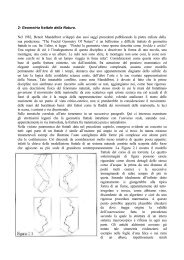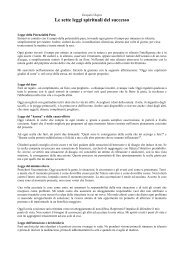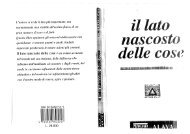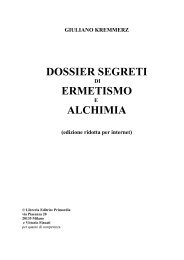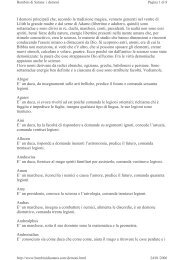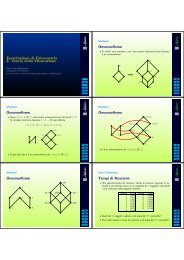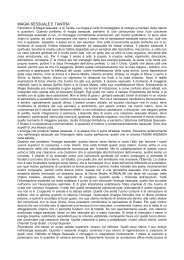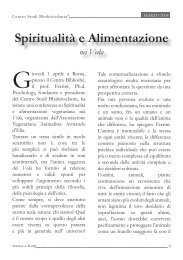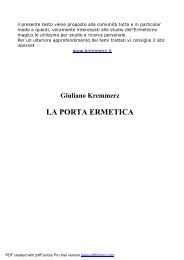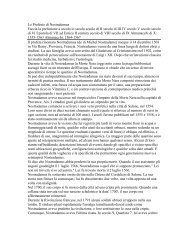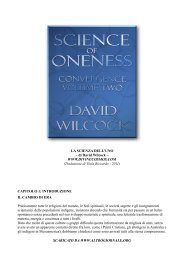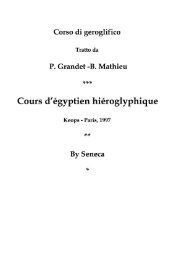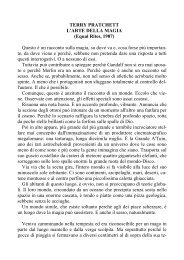116 ~ TALIBANcibly stopped from doing so. They banned Labour Day on 1 May for beinga communist holiday, for a time they also banned Ashura, the ShiaIslamic month of mourning and even restricted any show of festivity atEid, the principle Muslim clelebration of the year.Most Afghans felt demoralized by the fact that the Islamic worlddeclined to take up the task of condemning the Taliban's extremism.Pakistan, Saudi Arabia and the Arab Gulf states have never issued asingle statement on the need for women's education or human rights inAfghanistan. Nor did they ever question the Taliban's interpretation ofSharia. Asian Muslim countries were also silent. Surprisingly, Iran issuedthe toughest defence of women's rights under Islam. 'Through their fossilizedpolicies the Taliban stop girls from attending school, stop womenworking out of their homes and all that in the name of Islam. Whatcould be worse than committing violence, narrow-mindedess and limitingwomen's rights and defaming Islam,' said Ayatollah Ahmad Jannati, asearly as 1996. 20 Iranian criticism of Taliban policies escalated dramaticallyafter the deaths of their diplomats in Mazar in 1998.In Mazar stands the Tomb of Rabia Balkhi, a beautiful, tragic medievalpoetess. She was the first woman of her time to write love poetry inPersian and died tragically after her brother slashed her wrists as punishmentfor sleeping with a slave lover. She wrote her last poem in her ownblood as she lay dying. For centuries young Uzbek girls and boys treatedher tomb with saint-like devotion and would pray there for success intheir love affairs. After the Taliban captured Mazar, they placed her tombout of bounds. Love, even for a medieval saint, was now out of bounds.9HIGH ON HEROIN:DRUGS AND THETALIBAN ECONOMYJust two miles from Kandahar's city centre poppy fields stretch as far asthe horizon. In the spring of 1997, farmers were carefully tending theyoung, green, lettuce-like leaves of the plants which had been planteda few weeks earlier. They meticulously hoed the soil to uproot weeds,sprinkled fertilizer and repaired irrigation ditches destroyed by the Sovietarmy in the 1980s to provide water to the fields. In a few weeks the leaveswould sprout a bright red flower which would bloom until its petals fellaway to reveal a hardened capsule.Four months after sowing the poppy seeds, the capsules would be readyto be lanced with thin, home-made blades for their liquid gold. Thefarmer would squeeze each capsule with his fingers until a milky-whitegooey substance oozed out. By the next day the opium would solidify intoa brown gum which would be scraped off with a trowel. This operationwould be repeated every few days until the plant stopped yielding anygum. The raw opium would be collected, slapped together in a cake andkept wet in plastic bags until the dealers arrived. The best quality opium,generally obtained from well-irrigated land, has a dark brown colour andsticky texture. It is called tor, the substance which lubricates the financesof all the Afghan warlords, but particularly the Taliban. 1'We cannot be more grateful to the Taliban,' said Wali Jan, a toothless,elderly farmer as he weeded his fields. 'The Taliban have brought us securityso we can grow our poppy in peace. I need the poppy crop to supportmy 14 family members,' he added. The Taliban objective of reestablishingpeace and security in the countryside has proved to be animmense boon to opium farming. On his small plot of land Wali Janproduces 45 kilograms of raw opium every year and earns about
118 TALIBANUS$1,300 - a small fortune for Afghan farmers. Wali Jan knows thatrefined heroin fetches 50 times that price in London or New York, buthe is more than happy with what he gets. The results of this cash floware evident everywhere, for there is more reconstruction going on in villagesaround Kandahar than anywhere else in Afghanistan.The Taliban have provided an Islamic sanction for farmers like WaliJan to grow even more opium, even though the Koran forbids Muslimsfrom producing or imbibing intoxicants. Abdul Rashid, the head of theTaliban's anti-drugs control force in Kandahar, spelt out the nature of hisunique job. He is authorised to impose a strict ban on the growing ofhashish, 'because it is consumed by Afghans and Muslims'. But, Rashidtells me without a hint of sarcasm, 'Opium is permissable because it isconsumed by kafirs [unbelievers] in the West and not by Muslims orAfghans-' There are other political imperatives for letting poppy farmingflourish. 'We let people cultivate poppies because farmers get good prices.We cannot push the people to grow wheat as there would be an uprisingagainst the Taliban if we forced them to stop poppy cultivation. So wegrow opium and get our wheat from Pakistan,' he said. 2Governor Mohammed Hassan justifies this unique policy with anothertwist. 'Drugs are evil and we would like to substitute poppies with anothercash crop, but it's not possible at the moment, because we do not haveinternational recognition.' Over the next two years, Mullah Omar was toperiodically offer the US and the UN an end to poppy cultivation, if theTaliban were given international recognition - the first time a movementcontrolling 90 per cent of a country had offered the international communitysuch an option.The Taliban had quickly realized the need to formalize the drugs economyin order to raise revenue. When they first captured Kandahar theyhad declared they would eliminate all drugs and US diplomats wereencouraged enough by the announcement to make immediate contactwith the Taliban. However, within a few months the Taliban realizedthat they needed the income from poppies and would anger farmers bybanning it. They began to collect an Islamic tax called zakat on all dealersmoving opium. According to the Koran, Muslims should give 2.5 per centof their disposable income as zakat to the poor, but the Taliban had noreligious qualms in collecting 20 per cent of the value of a truckload ofopium as zokat. Alongside this, individual commanders and provincialgovernors imposed their own taxes to keep their coffers full and theirsoldiers fed. Some of them became substantial dealers in opium or usedtheir relatives to act as middlemen.Meanwhile the Taliban crackdown against hashish, a staple part ofAfghan truck-drivers diets was extremely effective - demonstrating thatany crackdown on opium could be just as strictly implemented. In twoHIGH ON HEROIN: DRUGS AND THE TALIBAN ECONOMY — 119warehouses in Kandahar hundreds of sacks of hashish were stored afterbeing confiscated from growers and dealers. Ordinary people said theywere too scared to take hashish after the Taliban had forbidden it. Forthose who continued to do so clandestinely, the Taliban had devised anovel approach to curing hashish addiction. 'When we catch hashishsmugglers or addicts we interrogate and beat them mercilessly to find outthe truth,' said Abdul Rashid. 'Then we put them in cold water for manyhours, two or three times a day. It's a very good cure,' he added. 3 Rashidthen strode into the jail and pulled out several terrified prisoner-addictsto talk to me. They had no hesitation in agreeing that the Taliban's shocktherapy was effective. 'When I am beaten or in the cold water I forget allabout hashish,' said Bakht Mohammed, a shopkeeper and hashish dealerwho was serving three months in jail.Between 1992 and 1995 Afghanistan had produced a steady 2200-2400metric tonnes of opium every year, rivalling Burma as the world's largestproducer of raw opium. In 1996 Afghanistan produced 2,250 metrictonnes. Officials of the United Nations Drugs Control Programme(UNDCP) said that in 1996 Kandahar province alone produced 120metric tonnes of opium harvested from 3,160 hectares of poppy fields - astaggering increase from 1995, when only 79 metric tonnes was producedfrom 2,460 hectares. Then, in 1997, as Taliban control extended to Kabuland furthur north, Afghanistan's opium production rose by a staggering25 per cent to 2,800 metric tonnes. The tens of thousands of Pashtunrefugees arriving in Taliban-controlled areas from Pakistan were farmingtheir lands for the easiest and most lucrative cash crop available.According to the UNDCP, farmers received less than 1 per cent of thetotal profits generated by the opium trade, another 2.5 per cent remainedin Afghanistan and Pakistan in the hands of dealers, while 5 per cent wasspent in the countries through which the heroin passed while en route tothe West. The rest of the profits were made by the dealers and distributorsin Europe and the US. Even with this low rate of return, it is conservativelyestimated that some one million Afghan farmers are making overUS$100 million dollars a year on account of growing poppies. The Talibanwere thus raking in at least US$20 million in taxes and even moreon the side.Ever since 1980, all the Mujaheddin warlords had used drugs money tohelp fund their military campaigns and line their own pockets. They hadbought houses and businesses in Peshawar, new jeeps and kept bankaccounts abroad. Publicly they refused to admit that they indulged indrugs trafficking, but always blamed their Mujaheddin rivals for doing so.But none had ever been so brazen, or honest, in declaring their lack ofintention to control drugs as the Taliban. By 1997, UNDCP and the US
- Page 1 and 2:
YALE NOTA BENE"The broader storyher
- Page 3 and 4:
TalibanMilitant Islam,Oil and Funda
- Page 5 and 6:
Vi ~ CONTENTSChapter 8A Vanished Ge
- Page 7 and 8:
AFGHANISTAN•^ UZBEKISTAN J TAJIKI
- Page 9 and 10:
2 ~ TALIBANaccounts for some 40 per
- Page 11 and 12:
"6 ~ TALIBANgas riches of landlocke
- Page 13 and 14:
10 ~ TALIBANgious mix that was to m
- Page 15 and 16: Part 1History of theTaliban Movemen
- Page 17 and 18: 18 ~ ISLAM OIL AND THE NEW GREAT GA
- Page 19 and 20: 22 ~ ISLAM OIL AND THE NEW GREAT GA
- Page 21 and 22: 26 ~ ISLAM OIL AND THE NEW GREAT GA
- Page 23 and 24: 30 ~ ISLAM OIL AND THE NEW GREAT GA
- Page 25 and 26: 34 TALIBANKabul- Hikmetyar had alli
- Page 27 and 28: 38 ~ TALIBANrHERAT 1995: GOD'S INVI
- Page 29 and 30: 42 ~ TALIBANdo manage to take Kabul
- Page 31 and 32: J46 ~ TALIBANgreater weight to UN e
- Page 33 and 34: 50 ~ TALIBANas they hung from steel
- Page 35 and 36: 54 ~ TALIBANthey would help rearm t
- Page 37 and 38: 58 TALIBANGul Mohammed Pahlawan, Gh
- Page 39 and 40: 62 TALIBAN2,500 Taliban, who had re
- Page 41 and 42: 66 TALIBANshould throw all aid agen
- Page 43 and 44: 70 ~ TALIBANyears of battle and hel
- Page 45 and 46: 74 ~ TALIBANThousands of Hazaras we
- Page 47 and 48: 78 TALIBANhas become a plague,' sai
- Page 49 and 50: NEW STYLE FUNDAMENTALISM OF THE TAL
- Page 51 and 52: 86 TALIBANsity students - Hikmetyar
- Page 53 and 54: 90 TALIBANSharia was heavily influe
- Page 55 and 56: 94 TALIBANinflamed the debate in th
- Page 57 and 58: 98 TALIBANizing factor of Islam, it
- Page 59 and 60: 102 TALIBANadministrations made the
- Page 61 and 62: 106 ~ TAUBANfrom working, but it no
- Page 63 and 64: TALIBANUniversity, she held down a
- Page 65: 114 TALIBAN A VANISHED GENDER 115Ta
- Page 69 and 70: 122 TALIBANper cent of the total Pa
- Page 71 and 72: 126 TALIBANequipment, no electricit
- Page 73 and 74: 130 ~ TALIBANfight with the Mujahed
- Page 75 and 76: 134TALIBANAugust 1996 noted that Bi
- Page 77 and 78: 138 ~ TALIBANwho were using the Kho
- Page 79 and 80: 11DICTATORS AND OILBARONS: THE TALI
- Page 81 and 82: 146 TALIBAN DICTATORS AND OIL BARON
- Page 83 and 84: 150 — TALIBANgrowth of beards and
- Page 85 and 86: 154TALIBAN1998 when international o
- Page 87 and 88: 158 ~ TALIBANaround Afghanistan? Af
- Page 89 and 90: 162 TALIBAN ROMANCING THE TALIBAN 1
- Page 91 and 92: 166 TALIBAN ROMANCING THE TALIBAN 1
- Page 93 and 94: ROMANCING THE TALIBAN 2: 1997-99 17
- Page 95 and 96: 174 — TALIBANnon-Russian pipeline
- Page 97 and 98: 178 — TALIBANROMANCING THE TALIBA
- Page 99 and 100: 182 ~ TALIBANApril 1999. 'The US ha
- Page 101 and 102: 186 ~ TALIBANters or the transport
- Page 103 and 104: 190 ~ TALIBANThis Wild West of free
- Page 105 and 106: 194 ~ TALIBANgovernance. Pakistani
- Page 107 and 108: 198 TALIBAN SHIA VERSUS SUNNI: IRAN
- Page 109 and 110: 202 TALIBAN SHIA VERSUS SUNNI: IRAN
- Page 111 and 112: 206 — TALIBANin Afghanistan - to
- Page 113 and 114: 210 — TALIBANand antagonism. The
- Page 115 and 116: 214 ~ TALIBANdrawn since 1996 - a P
- Page 117 and 118:
218 ~ TALIBANated and severely puni
- Page 119 and 120:
Origins of Members of the Taliban M
- Page 121 and 122:
APPENDIX 3 ~ 227Appendix 3A CHRONOL
- Page 123 and 124:
230 ~ TALIBANgraves near Shebarghan
- Page 125 and 126:
234 ~ TALIBAN8 June. US FBI places
- Page 127 and 128:
238 ~ TALIBAN1995 January16 MarchAp
- Page 129 and 130:
242 ~ TALIBANJune21 August10 Septem
- Page 131 and 132:
246 ~ TALIBANDupree, Nancy Hatch, A
- Page 133 and 134:
250 ~ NOTESChapter 31 Interview wit
- Page 135 and 136:
254 ~ NOTESmuddin, Religious Police
- Page 137 and 138:
258 NOTES13. The Japanese company M
- Page 139 and 140:
262 ~ NOTES28. Waxman, Sharon, 'A c
- Page 141 and 142:
Abbas, Mulla Mohammed 22,61,100Abda
- Page 143 and 144:
INDEX - 270Hazaras (continued)burea
- Page 145 and 146:
INDEX ~ 274nF»r\/FaliViar» milita
- Page 147:
INDEX ~ 278Talibans (continued)Sunn




